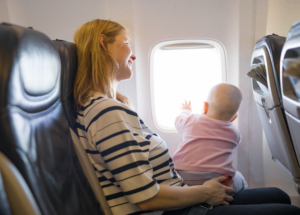Used correctly, social media can pay off for the hospitality industry
Over the holidays, the JW Marriott Desert Ridge built a giant village out of 800 pounds of gingerbread and 250 pounds of chocolate to display in its lobby. For four weeks, the cookie town was posted on the JW Facebook page and fans were invited to guess how many gumdrops, pounds of dough, poinsettias and twinkling lights were decorating the resort. Winners received a weekend stay.
Did the campaign succeed?
Definitely, according to Jennifer Whittle, account supervisor with the Lavidge Co., which represents the resort. The goal was to increase fans on Facebook, a figure that doubled in a month. “Additional objectives were to drive traffic to the resort’s website and property,” she said, “and to position the resort as a fun place to visit.”
But still, just as with traditional advertising, marketing or public relations, it can be tough to measure how social media translates into revenue in the tourism industry.
Measuring whether this new medium is working depends on what a business wants to achieve, said Rebecca Seymann, Lavidge director of interactive campaigns. Some businesses believe that the more people who “see” them on Facebook or on a blog or in an app, the more awareness of their brand will grow, thus driving up sales.
But businesses do try to compute results. “Many hospitality businesses use social media, email, their websites and aggregators to promote special offers and then measure direct sales using a variety of tracking tools,” Seymann notes. And many use social media to respond to customer complaints as well.
One attraction of social media is that the cost of use seems minimal. Facebook, YouTube, and Twitter are all free. Writing the copy and getting the photos or videos for social media do cost something; as does monitoring the site. A cottage industry has grown to help businesses interpret the data from social media; but some measuring systems are still free.
“Facebook has metrics built in that don’t cost anything,” says Christine Carlson, advertising manager at Las Vegas-based Allegiant Travel, which flies out of Phoenix-Mesa Gateway Airport. “And we also use Google Analytics, which is free as well.”
So Allegiant can find out how many Web users click on its Facebook page and repost the page to other fans; how many viewers like the company’s site; even how many viewers switch from Facebook to the Allegiant Web site to book a trip. But if a Facebook user looks at the company’s website, signs off and then comes back four days later to book a trip, Allegiant can’t easily track that. In its brief time using social media, Allegiant has attracted more than 50,000 fans on Facebook.
For some hospitality businesses, such as W Scottsdale, the main objective of a social media campaign is to “engage in conversation with our fans,” according to Joe Iturri, director of sales and marketing. The hotel uses Facebook and Twitter particularly to promote W happenings to fans first. The events often involve fashion design and music. “W often gives fans insider access, like sending information to them first about our big New Year’s Eve event,” he says.
But W’s use of social media can be even more up-close and personal in pursuing contact with potential customers. When fans post messages saying they will visit the hotel soon, W’s social media rep tries to chat online with them about their likes and dislikes. “We’ll ask what wines they like, for example, and when they arrive, we have a bottle of a great wine in their room. Or we’ll find out whether they like foam or feather pillows,” Iturri says. Facebook and Twitter get top billing. Other channels used: YouTube, FourSquare, Yelp.
When favorable posts come in about a past visit, W responds, too. Or if there is a negative review on TripAdvisor, “we contact the poster and try to resolve the problem to the best of our ability,” Iturri says.
In 2009, the hotel hired a full-time social media person to answer postings around the clock, Iturri says. That employee checks Twitter, Facebook and other channels several times — both night and day — on a laptop and responds to questions and postings both favorable and unfavorable. The first person to hold the job was so successful that she was transferred to the W Hotel headquarters to start national programs.
That all might work for a national or international company, but what about the little guy — the independently owned restaurant or boutique or small resort?
For smaller businesses, social media can pay off, too, says Josh Kenzer, online marketing manager for the Scottsdale Convention and Visitors Bureau. The big issue for a smaller business, though, might be the labor costs in maintaining an up-to-date Facebook page, for example, adding pictures and news regularly.
“A business owner needs to be honest about the time he can devote to it,” Kenzer says. “Here at the bureau, someone has to spend about 30 minutes to an hour a day adding new content. You also don’t want someone to post a message on your page that says, ‘I’m here this weekend and what can you do for me?’ and then you don’t reply to them.”
Social media is also not a silver bullet. “Like website management, pay-per-click, SEO and banner campaigns — and like print, radio, public relations — social media should become a regular recurring marketing activity and a budget line item that incorporates key marketing messages to target audiences,” says Seymann of the Lavidge Co.




